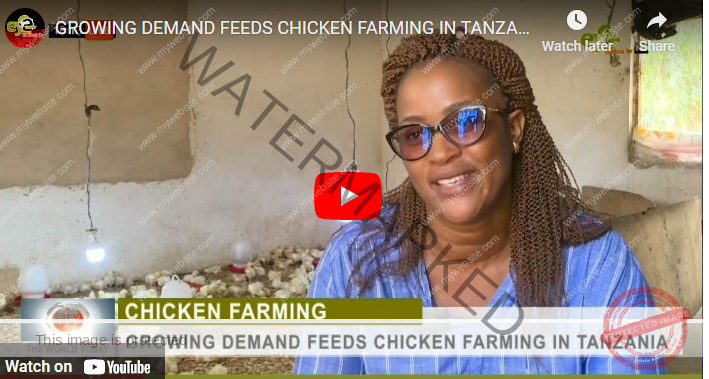Agriculture is a vital sector of the Nigerian economy, contributing significantly to the country’s Gross Domestic Product (GDP) and providing employment opportunities for millions of people.
With a population of over 200 million people, Nigeria has a large and growing demand for food and other agricultural products.
This article presents 25 facts about agriculture in Nigeria, highlighting some of the challenges facing the sector and the opportunities for growth and development.
These facts cover a wide range of topics, including the types of crops grown, the size of the agricultural sector, the role of smallholder farmers, and the potential for innovation and investment in the sector.
25 Agriculture Facts In Nigeria
Nigeria is a country that heavily relies on agriculture, and here are 25 facts to prove it: Agriculture contributes to over 20% of the country’s GDP, employs over 50% of the population, produces over 90% of the country’s food needs, and more.
Other facts cover crops, livestock, exports, and challenges faced by the industry. Here are 25 incredible agriculture facts in Nigeria.
Read Also: 25 Agriculture Facts In Canada [All You Need To Know]
Fact 1: Nigeria is the largest producer of cassava in the world
Nigeria accounts for about 20% of global cassava production.
Fact 2: Agriculture employs over 70% of Nigeria’s population
The majority of Nigerians work in the agriculture sector, which is mainly dominated by smallholder farmers.
Fact 3: Nigeria is the largest producer of tomatoes in sub-Saharan Africa
Tomatoes are an important crop in Nigeria, but the sector faces challenges such as poor infrastructure and pests and diseases.
Read Also: 12 Top Agricultural Producing Countries
Fact 4: Nigeria is the world’s third-largest producer of ginger
Ginger is an important cash crop in Nigeria, with the majority of production coming from the northern part of the country.
Fact 5: Nigeria is the world’s second-largest producer of sorghum.
Sorghum is a major cereal crop in Nigeria, used for food and animal feed.
Fact 6: Nigeria is the largest producer of yams in the world.
Yams are a staple food in Nigeria and are grown mainly in the southern part of the country.
Read Also: 25 Agriculture Facts In California
Fact 7: Nigeria is the world’s second-largest producer of cowpeas.
Cowpeas are an important source of protein and income for smallholder farmers in Nigeria.
Fact 8: Nigeria is the world’s largest producer of Shea nuts
Shea nuts are used for various purposes such as cosmetics, food, and medicine.
Fact 9: Nigeria is the world’s largest producer of gum arabic
Gum Arabic is a natural additive used in the food and beverage industry.
Fact 10: Nigeria is the world’s fourth-largest producer of cocoa
Cocoa is an important cash crop in Nigeria, with the majority of production coming from the southern part of the country.
Read Also: Richest Sikh Farmers In California
Fact 11: Nigeria is the world’s fifth-largest producer of palm oil
Palm oil is used in various industries such as food, cosmetics, and biofuels.
Fact 12: Nigeria is the world’s largest producer of African mango.
African mango is a fruit used for food and medicine.
Fact 13: Agriculture accounts for about 21% of Nigeria’s GDP
The agriculture sector is a major contributor to the Nigerian economy.
Fact 14: Nigeria has a huge potential for aquaculture
Nigeria has a large coastline and various water bodies that offer huge potential for fish farming and other aquaculture activities.
Fact 15: Nigeria has a large livestock population
Nigeria has a large population of livestock such as cattle, goats, sheep, and poultry, which provide a source of income and food for many Nigerians.
Read Also: Richest Poultry Farmer In The World
Fact 16: Nigeria’s agricultural sector faces challenges such as inadequate infrastructure, poor access to finance, and pests and diseases.
Despite its potential, the agricultural sector in Nigeria faces various challenges that hinder its growth and development.
Fact 17: Nigeria has various agricultural policies and initiatives aimed at boosting the sector
The Nigerian government has various policies and initiatives aimed at improving the agricultural sector, such as the Agricultural Transformation Agenda and the Anchor Borrowers Program.
Fact 18: Nigeria is a member of the African Union’s Comprehensive African Agriculture Development Programme (CAADP)
CAADP is a continental framework aimed at boosting agricultural productivity and food security in Africa.
Read Also: Top 5 Richest Poultry Farmer In Kenya
Fact 19: Nigeria has a large youth population that can contribute to the growth of the agricultural sector
The Nigerian youth population is estimated at over 60 million, and there are various opportunities for youth engagement in agriculture such as agribusiness and entrepreneurship.
Fact 20: Nigeria’s agriculture sector has the potential to create millions of jobs and reduce poverty
The agricultural sector in Nigeria has the potential to create millions of jobs and reduce poverty, particularly in rural areas.
Fact 21: Nigeria has various agro-processing opportunities
There are various opportunities for agro-processing in Nigeria, such as the processing of fruits, vegetables, and grains into value-added products.
Fact 22: In Nigeria, crop production constitutes the most significant component of the agricultural sector
Crop production is the primary source of Nigeria’s agricultural GDP, accounting for more than 90% of it, while the remaining 10% is composed of livestock, forestry, and fishing.
Nigeria cultivates several major crops, including cassava, yam, maize, sorghum, rice, and millet, which together occupy 65% of the total cultivated area in the country.
In addition to food crops, Nigeria also produces cash crops, such as cocoa, rubber, cotton, and oil palm, on a large scale.
Cocoa is Nigeria’s main non-oil foreign exchange earner, but its production has declined steadily in recent years.
Rubber, grown in several states of Nigeria, including Edo, Delta, Ondo, Ogun, Abia, Anambra, Akwa Ibom, Ebonyi, and Bayelsa, is the second-largest non-oil foreign exchange earner.
Nigeria’s economy benefits significantly from oil palm, which serves as a vital source of food and raw materials for various industries such as cosmetics, biofuels, plastics, and drugs.
Fact 23: Nigeria has various climate change challenges that affect agriculture
Climate change poses various challenges to the agricultural sector in Nigeria, such as changes in rainfall patterns, increased temperatures, and soil degradation.
Fact 24: Nigeria has a huge potential for organic agriculture
Organic agriculture offers opportunities for sustainable and environmentally friendly farming practices in Nigeria.
Fact 25: The agricultural land area in Nigeria amounts to 70.8 million hectares
The United Nations Food and Agriculture Organization (FAO) has reported that farming practices, such as crop farming and pasturing, are conducted on a substantial portion of Nigeria’s land area, amounting to approximately 71 million hectares.
This extensive agricultural land includes 34 million hectares of arable land, ranking Nigeria as the seventh largest arable land area globally.
More so, permanent crops occupy 6.5 million hectares, while meadows and pastures account for 30.3 million hectares.
Benefits of Agriculture in Nigeria
The benefits of agriculture in Nigeria include the following:
- Provides employment opportunities for farmers and laborers in rural areas.
- Contributes to the country’s food security by producing staple crops like cassava, yam, maize, sorghum, rice, and millet.
- Generates income for the country through the export of cash crops like cocoa, rubber, cotton, and oil palm.
- Provides raw materials for agro-allied industries, which contribute to the growth of Nigeria’s economy.
- Encourages the development of rural infrastructure such as roads, irrigation systems, and electricity.
- Contributes to poverty reduction by providing food for consumption and income for farmers and traders.
- Enhances the country’s foreign exchange reserves by reducing the dependence on imported food products.
Challenges Facing Nigeria’s Agricultural Sector
Despite the benefits of agriculture in Nigeria, it is not without some challenges which serves as a setback to the venture in the country. Here are some of the challenges faced in Nigeria’s agricultural sector.
- Limited access to finance and credit facilities for farmers.
- Inadequate infrastructure, such as roads and storage facilities, which affect the transportation and preservation of agricultural products.
- Poor implementation of government policies and inadequate support for farmers.
- Insecurity and conflicts in rural areas, which affect farmers’ ability to cultivate crops and transport products.
- Climate change, which affects crop yields and makes farming more challenging.
- Pests and diseases that affect crop productivity.
- Limited access to technology and modern farming practices, which affects productivity and reduces yields.
Best Agricultural Practices in Nigeria
- Crop rotation to maintain soil fertility and reduce pests and diseases.
- Irrigation to increase crop yields and ensure consistent production.
- Integrated pest management to reduce the use of pesticides and improve crop quality.
- Use of improved seed varieties and high-quality fertilizers to increase yields.
- Application of modern technologies such as precision farming, which helps farmers to make informed decisions about their farming activities.
- Organic farming practices to produce crops free from chemical residues and promote environmental sustainability.
- Proper storage and transportation of crops to prevent post-harvest losses.
Is Agriculture Profitable in Nigeria
Agriculture can be profitable in Nigeria if done well. The profitability of agriculture in Nigeria depends on several factors, such as the type of crop or livestock being produced, access to finance and credit facilities, access to markets, government policies, and the adoption of modern farming practices.
Some farmers in Nigeria have been able to achieve significant profitability through the cultivation of cash crops such as cocoa and oil palm.
Importance of Agriculture in Nigeria’s Economy
Agriculture is crucial to Nigeria’s economy and plays a significant role in poverty reduction, employment creation, and economic growth.
Agriculture provides raw materials for agro-allied industries, which generate revenue for the country.
The sector also contributes significantly to the country’s gross domestic product (GDP) and foreign exchange earnings through the export of cash crops.
Agriculture is also essential for food security in Nigeria, as it provides staple crops for domestic consumption.
The development of the agricultural sector is crucial to Nigeria’s economic diversification, as the country seeks to reduce its reliance on crude oil exports.
Major Crops Grown in Nigeria
Nigeria is an agricultural nation with fertile lands that support the cultivation of various crops.
The country has a diverse agro-ecological zone that favors the growth of different crops, and this has contributed to the wide range of crops grown in Nigeria.
Here are some of the major crops grown in Nigeria:
- Cassava: Cassava is a staple food in Nigeria and is grown in almost all parts of the country. Nigeria is the world’s largest producer of cassava, and the crop contributes significantly to the country’s food security.
- Yam: Yam is another staple food in Nigeria and is grown in large quantities. The country is the largest producer of yam in the world, and the crop is widely consumed in the country.
- Maize: Maize is one of the major cereal crops grown in Nigeria, and it is used for both human consumption and animal feed. The crop is cultivated in almost all parts of the country and is a source of income for many farmers.
- Rice: Rice is a popular food crop in Nigeria, and the country is one of the largest importers of rice in the world. However, efforts are being made to boost local rice production in Nigeria to reduce the country’s reliance on imported rice.
- Sorghum: Sorghum is an important cereal crop in Nigeria, and it is used for making various food products such as porridge and beer. The crop is also used as animal feed.
- Millet: Millet is another cereal crop grown in Nigeria, and it is used for making various food products such as porridge and bread. The crop is also used as animal feed.
- Groundnut: Groundnut is an important oilseed crop in Nigeria, and it is used for making groundnut oil, which is a popular cooking oil in the country. The crop is also used as a source of protein for animal feed.
- Soybean: Soybean is a leguminous crop grown in Nigeria, and it is used for making various food products such as soy milk and tofu. The crop is also used as a source of protein for animal feed.
- Cocoa: Cocoa is an important cash crop in Nigeria, and the country is one of the largest producers of cocoa in the world. The crop is grown in the southern part of the country, and it is a major source of foreign exchange for Nigeria.
- Rubber: Rubber is another important cash crop in Nigeria, and the country is one of the largest producers of rubber in Africa. The crop is grown in the southern part of the country, and it is a source of income for many farmers.
Agriculture In Nigeria PDF
Agriculture in Nigeria is a significant contributor to the country’s economy, accounting for over 20% of its GDP.
The agriculture sector in Nigeria has been expanding over the years, and the Nigerian government has placed a high priority on improving the sector’s productivity and increasing its contribution to the country’s economic growth.
An Agriculture in Nigeria PDF would be a comprehensive document that provides information on various aspects of agriculture in Nigeria, such as the top farming states, agricultural products, types of agriculture, the history of agriculture, and the contributions of agriculture to Nigeria’s economy.
Top 20 Farming State In Nigeria
Nigeria has 36 states, and each state has its unique agricultural products and practices. The top 20 farming states in Nigeria are those with a high concentration of agricultural activities and contribute significantly to the country’s food security and economic growth.
Some of the top farming states in Nigeria include:
- Kano State – known for producing rice, maize, millet, and wheat.
- Kaduna State – a major producer of ginger, maize, tomatoes, and soybeans.
- Lagos State – known for its aquaculture and vegetable farming.
- Ogun State – known for producing cassava, maize, yam, and vegetables.
- Oyo State – known for producing cassava, maize, yam, and vegetables.
- Sokoto State – known for producing cowpea, groundnut, and rice.
- Zamfara State – known for producing cotton, groundnut, and sorghum.
- Niger State – a major producer of rice, maize, sorghum, and millet.
- Katsina State – known for producing beans, groundnut, and sesame seeds.
- Jigawa State – known for producing rice, maize, and sorghum.
- Plateau State – known for producing potatoes, rice, and soybeans.
- Benue State – known for producing yam, cassava, and rice.
- Adamawa State – known for producing maize, sorghum, and rice.
- Ebonyi State – known for producing rice, yam, and cassava.
- Kwara State – known for producing yam, cassava, and maize.
- Delta State – known for producing cassava, yam, and plantain.
- Cross River State – known for producing cocoa, oil palm, and rubber.
- Edo State – known for producing oil palm, rubber, and cocoa.
- Imo State – known for producing cassava, yam, and maize.
- Anambra State – known for producing rice, cassava, and yam.
These states have significant agricultural activities, and their produce helps to ensure food security and economic growth in Nigeria.
Nigeria Agricultural Products
Nigeria is blessed with abundant natural resources, including fertile soil and a favorable climate, which support the production of a variety of agricultural products.
Some of the major agricultural products produced in Nigeria include cassava, yam, maize, sorghum, rice, millet, cocoa, rubber, cotton, oil palm, and livestock products such as poultry, beef, and dairy.
Number Of Farmers In Nigeria
Nigeria has a large population of farmers, with over 70% of the country’s population engaged in agriculture. According to the Food and Agriculture Organization (FAO), Nigeria has over 84 million hectares of arable land, and agriculture employs over 30% of the country’s labor force.
Types Of Agriculture In Nigeria
Nigeria’s agriculture sector is diverse and encompasses various types of agriculture, such as crop farming, livestock farming, fisheries, forestry, and agro-processing. The different types of agriculture in Nigeria have different levels of productivity, profitability, and sustainability.
History Of Agriculture In Nigeria
Agriculture has been a significant economic activity in Nigeria for centuries, dating back to pre-colonial times. The country’s agriculture sector has undergone several transformations over the years, with the adoption of modern farming practices and the development of agro-allied industries. The history of agriculture in Nigeria reflects the country’s rich cultural and economic heritage.
25 Contributions Of Agriculture To Nigeria Economy
Agriculture contributes significantly to Nigeria’s economy, and some of its contributions include:
- Providing food and raw materials for agro-allied industries.
- Generating employment opportunities for farmers and laborers in rural areas.
- Contributing to the country’s foreign exchange earnings through the export of cash crops.
- Enhancing the development of rural infrastructure, such as roads and electricity.
- Promoting poverty reduction by providing food for consumption and income for farmers and traders.
- Encouraging economic diversification and reducing dependence on crude oil exports.
- Providing food and raw materials for agro-allied industries.
- Generating employment opportunities for farmers and laborers in rural areas.
- Contributing to the country’s foreign exchange earnings through the export of cash crops.
- Enhancing the development of rural infrastructure, such as roads and electricity.
- Promoting poverty reduction by providing food for consumption and income for farmers and traders.
- Encouraging economic diversification and reducing dependence on crude oil exports.
- Providing food and raw materials for agro-allied industries.
- Generating employment opportunities for farmers and laborers in rural areas.
- Contributing to the country’s foreign exchange earnings through the export of cash crops.
- Enhancing the development of rural infrastructure, such as roads and electricity.
- Promoting poverty reduction by providing food for consumption and income for farmers and traders.
- Encouraging economic diversification and reducing dependence on crude oil exports.
- Providing food and raw materials for agro-allied industries.
- Generating employment opportunities for farmers and laborers in rural areas.
- Contributing to the country’s foreign exchange earnings through the export of cash crops.
- Enhancing the development of rural infrastructure, such as roads and electricity.
- Promoting poverty reduction by providing food for consumption and income for farmers and traders.
- Encouraging economic diversification and reducing dependence on crude oil exports.
- Providing food and raw materials for agro-allied industries.
Conclusion
Agriculture plays a vital role in Nigeria’s economy and provides employment for a significant proportion of the population. The country has abundant natural resources and favorable weather conditions that support agricultural production. However, there are still challenges that need to be addressed, such as inadequate infrastructure, lack of access to credit, and inadequate funding for research and development. With proper investments and policies, Nigeria’s agricultural sector has the potential to be a major contributor to the country’s economic growth and development.




